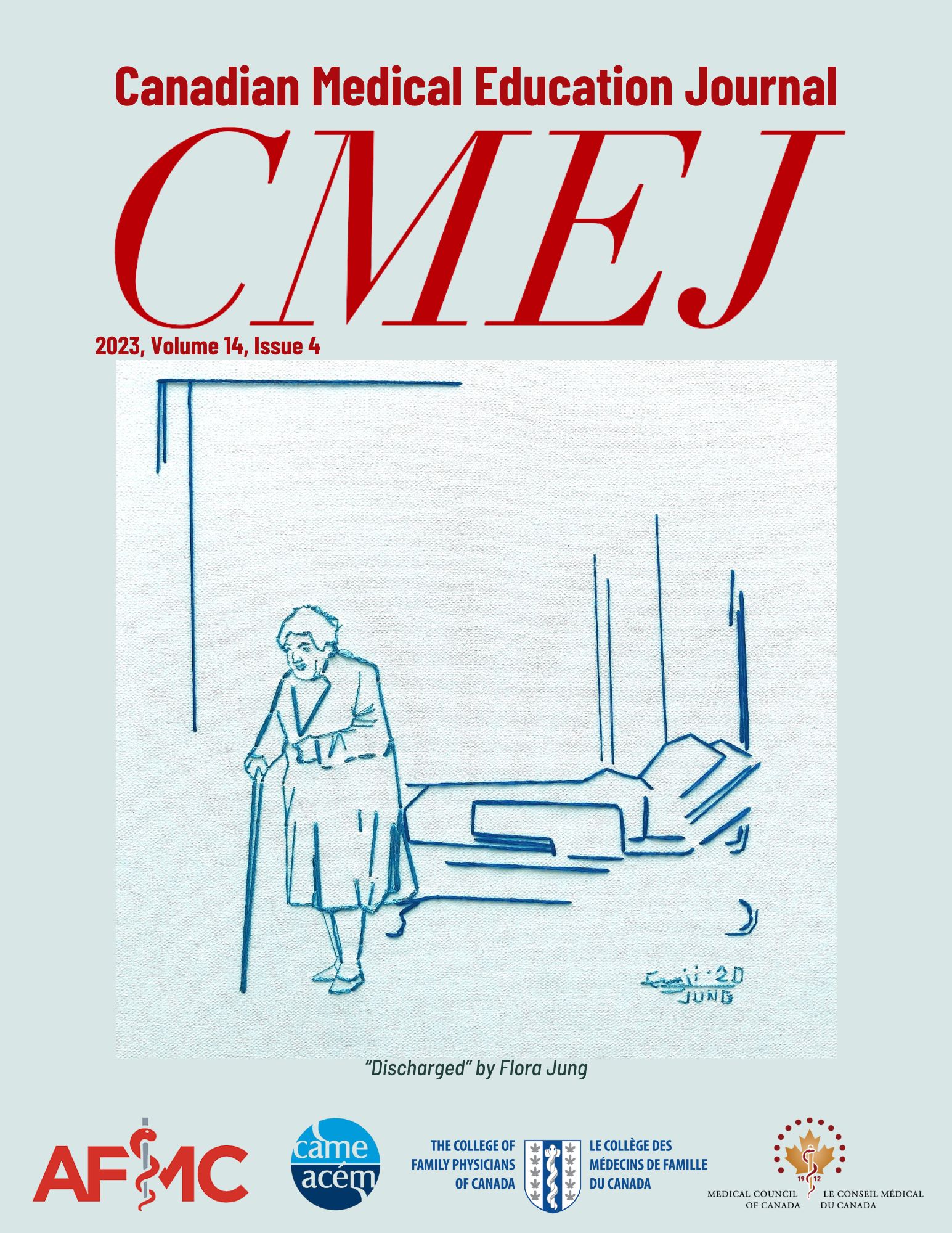Identifying Royal College-accredited simulation centre research priorities across Canada
DOI:
https://doi.org/10.36834/cmej.73911Abstract
To advance the field of health sciences simulation, research must be of high quality and would benefit from multi-institutional collaboration where centres can leverage and share expertise as well as work together to overcome limits to the generalizability of research findings from single-institution studies. A needs assessment in emergency medicine simulation has illustrated the importance of identifying research priorities in Canada. The main purpose of this study was to identify simulation research priority directions for Canadian simulation centres. The current survey study drew on 16 research priorities developed through a two-round internal Delphi study at McGill University that 15 of 17 simulation centre advisory board members participated in. The final 16 research priorities were then rated by a total of 18 of 24 simulation centre directors and/or delegates contacted from 15 of 19 Royal College of Physicians and Surgeons of Canada-accredited simulation centres in Canada. Results revealed 9 common research priorities that reached 70% or higher agreement for all respondents. We anticipate that our findings can contribute to building a shared vision of priorities, community, and collaboration to enhance health care simulation research quality amongst Canadian simulation centres.
References
Seymour NE. Integrating simulation into a busy residency program. MITAT. 2005;14(4-5):280-286. https://doi.org/10.1080/13645700500272421 DOI: https://doi.org/10.1080/13645700500272421
Fried G, Feldman L, Vassiliou M, et al. Proving the value of simulation in laparoscopic surgery. Annals of surg 2004;240(3):518-25; discussion 525-8. https://doi.org/10.1097/01.sla.0000136941.46529.56 DOI: https://doi.org/10.1097/01.sla.0000136941.46529.56
Stefanidis D, Sevdalis N, Paige J, et al. Simulation in surgery: what's needed next? Ann Surg. May 2015;261(5):846-53. https://doi.org/10.1097/SLA.0000000000000826 DOI: https://doi.org/10.1097/SLA.0000000000000826
Cook DA. One drop at a time: research to advance the science of simulation. Simul Healthc. Feb 2010;5(1):1-4. https://doi.org/10.1097/SIH.0b013e3181c82aaa DOI: https://doi.org/10.1097/SIH.0b013e3181c82aaa
Cook DA, Andersen DK, Combes JR, Feldman DL, Sachdeva AK. The value proposition of simulation-based education. Surgery. Apr 2018;163(4):944-949. https://doi.org/10.1016/j.surg.2017.11.008 DOI: https://doi.org/10.1016/j.surg.2017.11.008
Cook DA, Hamstra SJ, Brydges R, et al. Comparative effectiveness of instructional design features in simulation-based education: systematic review and meta-analysis. Med Teach. 2013;35(1):e867-98. https://doi.org/10.3109/0142159X.2012.714886 DOI: https://doi.org/10.3109/0142159X.2012.714886
Chaplin T, Thoma B, Petrosoniak A, et al. Simulation-based research in emergency medicine in Canada: priorities and perspectives. Cjem. Jan 2020;22(1):103-111. https://doi.org/10.1017/cem.2019.416 DOI: https://doi.org/10.1017/cem.2019.416
Cheng A, Bhanji F. A call to action: the future of simulation-based research in emergency medicine in Canada. Cjem. Jan 2020;22(1):8-10. https://doi.org/10.1017/cem.2019.481 DOI: https://doi.org/10.1017/cem.2019.481
Issenberg SB, Ringsted C, Ostergaard D, Dieckmann P. Setting a research agenda for simulation-based healthcare education: a synthesis of the outcome from an Utstein style meeting. Simul Healthc. Jun 2011;6(3):155-67. https://doi.org/10.1097/SIH.0b013e3182207c24 DOI: https://doi.org/10.1097/SIH.0b013e3182207c24
Trevelyan EG, Robinson PN. Delphi methodology in health research: how to do it? EUJIM. 2015/08/01/ 2015;7(4):423-428. https://doi.org/10.1016/j.eujim.2015.07.002 DOI: https://doi.org/10.1016/j.eujim.2015.07.002
Barrett D, Heale R. What are Delphi studies? Evid Based Nurs. 2020;23(3):68. https://doi.org/10.1136/ebnurs-2020-103303 DOI: https://doi.org/10.1136/ebnurs-2020-103303
de Villiers MR, de Villiers PJ, Kent AP. The Delphi technique in health sciences education research. Med Teach. Nov 2005;27(7):639-43. https://doi.org/10.1080/13611260500069947 DOI: https://doi.org/10.1080/13611260500069947
Inspire: International Network for Simulation-based Pediatric Innovation, Research, & Education. Retrieved from: https://inspiresim.org/
Downloads
Published
Issue
Section
License
Copyright (c) 2023 Jason M Harley, Clarissa Hin-Hei Lau, Elif Bilgic, Ricky Muller Moran, Gerald Fried, Farhan Bhanji

This work is licensed under a Creative Commons Attribution-NonCommercial-NoDerivatives 4.0 International License.
Submission of an original manuscript to the Canadian Medical Education Journal will be taken to mean that it represents original work not previously published, that it is not being considered elsewhere for publication. If accepted for publication, it will be published online and it will not be published elsewhere in the same form, for commercial purposes, in any language, without the consent of the publisher.
Authors who publish in the Canadian Medical Education Journal agree to release their articles under the Creative Commons Attribution-Noncommercial-No Derivative Works 4.0 Canada Licence. This licence allows anyone to copy and distribute the article for non-commercial purposes provided that appropriate attribution is given. For details of the rights an author grants users of their work, please see the licence summary and the full licence.











